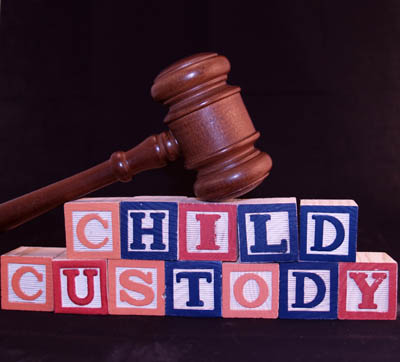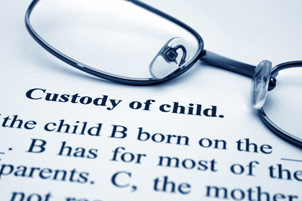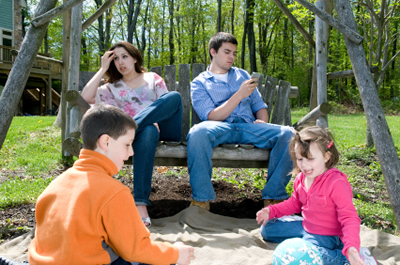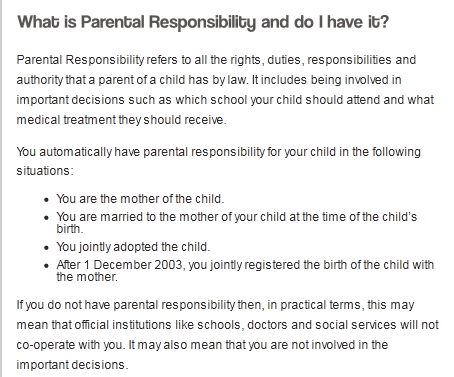
When parents get divorced there is a clause in the decree that arranges the child custody. In some circumstances, the child is consulted by the judge to try and determine which parent will have primary custody; however this is not normally done. The decision is usually left to the parents to put forward a case as to which of them will have primary custody, while the other parent will get access with varying amounts of restrictions.
Battling It Out
Family law can be a minefield when children are involved. Many parents tend to try and make arrangements between themselves before they go to court. Of course, this isn’t always possible, particularly if the separation is hostile. In certain circumstances, parents may not be able to agree on custody and it can be left up to the legal team to make the decision.
The court will not allow a couple to divorce until they can show they’ve arranged where children will live, who will pay maintenance and when they’ll spend time with each parent. If you struggle to do this, the court can insist you have at least considered mediation to try and come to an agreement, before taking the next step.
Personal Views on Child Custody
After the initial separation, the parents may agree it is more practical for the child to live with one parent. This could be due to a number of factors such as the location of the home or even the spare time one parent has over the other.
If one parent lives closer to schools then that would be a practical choice. Similarly, if one parent works long hours, it might be more suitable for the child to live with the parent that is around more.
Of course, the circumstances can change, as can the views of the child. While they might have been happy to live with one parent at the beginning, their feelings may change and they could be keen to live with the other parent as they get older. In these circumstances, things can get more complicated.
Changes to Child Custody Agreements
The court will issue a Residence Order for children so they have a set home with one parent or the other. These orders last until the child is sixteen or, sometimes, eighteen. If the child has the knowledge, they can apply for a residence order themselves but the judge or magistrate often tries to come to the best decision for you at the beginning. In the majority of circumstances, a child under the age of 12 will not be considered to have a full understanding and so their application may not be taken seriously by the court. However, if they are deemed to have the proper knowledge, the application will be considered by the High Court.
In many occasions, when a child changes their mind about who they want to live with, it can be sorted by just having a discussion with both parents. For the majority of cases, parents simply want what is best for their child and if they will be happier living with another parent, this can easily be arranged outside of court. The parents will make the arrangements between themselves and there is no need to start any legal proceedings for this. If the resident parent isn’t happy about the situation, then the non-resident parent will have to take the situation to court and apply for the Residence Order to be changed.
Parental Responsibility
This is something that comes into effect for parents when they separate. It means they are responsible for the child, even if they don’t live with them. This can be for things like discipline, providing education and agreeing to medical treatment for the child. Mothers automatically have parental responsibility but fathers do not. If they are married to the mother or are listed on the birth certificate, they have an automatic responsibility but if they don’t meet these criteria, they can apply to the courts to have it.
If one parent has parental responsibility but does not live with the child, they must make decisions jointly with the other parent on anything major on the upbringing of the child. If the parents are unable to agree on these decisions, it may be necessary to have mediation to make sure the right decision for the child is made.
Regardless of the personal situation all parents want to do what is best for their children. When separating or negotiating new custody terms it is easy to let personal feelings influence your decisions, but the end decision must be pragmatic.
If your child is old enough to express a reasoned view on their own living arrangements then it is important to listen to these desires. Whilst separation and disputes are never easy, it is important to make sure the outcome is best for all involved and provides a sustainable long-term solution.
If you have had experience with child custody arrangements, or have had to make changes to an existing agreement please do comment with your stories and experiences.
This article was written by Lauren Sutton on behalf of Crisp & Co Divorce and Family Lawyers. Lauren has a degree in magazine journalism and feature writing. She now researches and writes for a number of different industries. Crisp & Co are specialists in all aspects of family law working to find the best solution for all parties involved.










